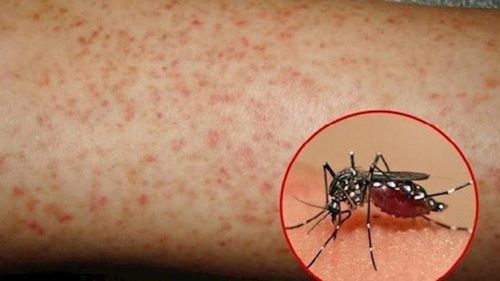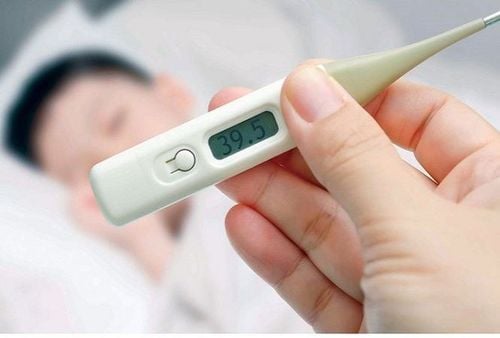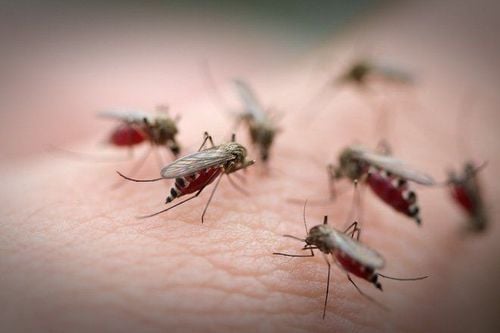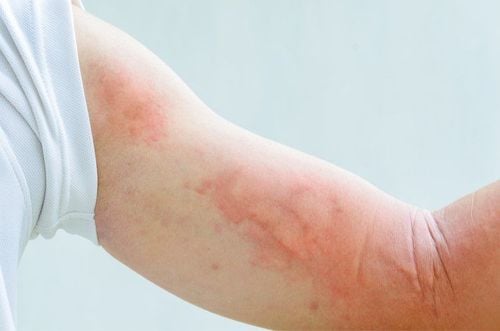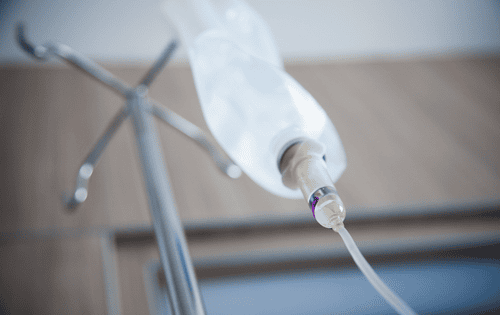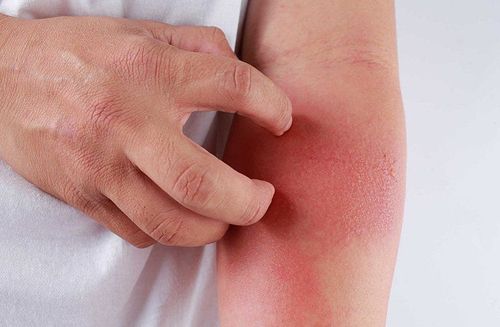This is an automatically translated article.
This article was professionally consulted with Master, Doctor Nguyen Thi Nhat - Infectious Disease Specialist - Department of Medical Examination & Internal Medicine - Vinmec Hai Phong International General Hospital.Dengue fever patients often experience dehydration, and high fever continuously makes the body exhausted, unable to eat and drink to rehydrate. So can dengue fever be transfused with water?
People with dengue fever are often at risk of fluid deficiency due to increased vascular permeability, leading to extracellular fluid leakage. Therefore, patients with dengue fever need to be compensated with a necessary amount of fluid. However, what type of fluid should be infused, how to administer it correctly, and safely are up to the discretion of the treating physician.
1. Can dengue fever patients receive fluids?
Patients with fever, diarrhea, and general dehydration should be rehydrated orally if possible. Transfusion of dengue fever does not have to be considered for each patient's specific stage and severity.During the period of high fever (about the first 2-3 days of illness), it is best to replenish water by drinking oresol solution or fruit juice, to replenish both water and electrolytes.
For the stage of dangerous complications (about the next 4-6 days), if it is found that the patient has a situation of fluid drainage, a lot of dehydration, the doctor will prescribe an infusion with an appropriate dose and type depending on the patient's condition. according to the scheme.
In the recovery phase (from day 7 onwards), the patient has the ability to reabsorb to compensate for the amount of fluid that has been lost in the previous stages, so it is necessary to absolutely avoid infusion.
Thus, infusionable dengue fever does not need to be considered and prescribed by a doctor. Avoid indiscriminate infusion of fluids, which can easily lead to danger.
2. Risk of reactions when arbitrarily transmitting to dengue patients
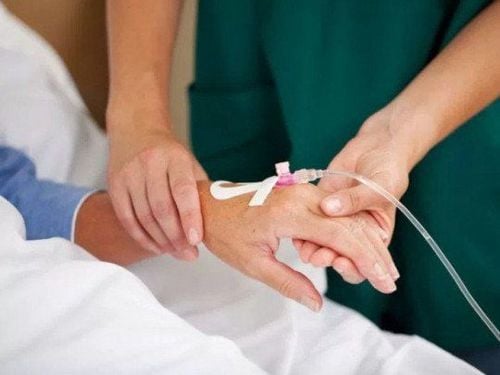
Even cases of dengue fever need to be hospitalized for monitoring, not all cases will be prescribed by the doctor. If infusion is available, the rate of infusion must also be adjusted differently from case to case, especially in pediatric patients.
During dengue fever, although there is a period of fluid loss (usually the first 3 days), there is also a last stage where fluid reabsorption occurs, if infusion during this time will cause excess fluid , leading to pulmonary edema and dangerous complications.
Therefore, the calculation of the infusion rate, how the infusion, what the infusion is will be prescribed by the doctor on each specific patient, not arbitrarily given as an infusion, which will be very dangerous to life. It is also easier to control complications if done by a doctor. For example, if a patient suddenly shows signs of hemoptysis, the doctor can adjust the fluid accordingly, considering using a macromolecular solution to retain water and avoid causing drainage.
In summary, the infusion of dengue fever patients must follow the correct protocol. Patients should not arbitrarily transfuse water, protein, or blood. Even with platelets, doctors rarely prescribe a transfusion, only when the platelet level falls below 10, or even below 5, accompanied by signs of bleeding, the doctor will prescribe a transfusion.
The Minister of Health has also warned people in the dengue season not to arbitrarily give infusions that are not indicated in order to prevent dangerous complications.
3. Some notes when giving fluids to patients with dengue fever
It is not necessary to administer fluids early to dengue patients in the early days of disease onset if the patient is still able to eat and drink. At this time, only natural oral rehydration should be encouraged.It should be noted that not every diagnosis of dengue fever requires rehydration fluid, this work must be strictly prescribed by the treating doctor: Only done when the patient eats poorly, vomits too much, causing loss of appetite. severe fluid and electrolyte imbalance, leading to hypotension, subclinical hemoconcentration (increased Hematocrit),...
Besides, the volume of fluid infusion is not the same for all patients, but must be specific how much is missing, how much should be compensated. If the patient shows signs of shock and hypotension, the fluid volume should be 15ml/kg/1h, then gradually reduced according to the guidance of the Ministry of Health. In case the patient is not in shock, only 1-2 liters of fluid per day should be administered regularly. In addition, during infusion, medical staff need to control other diseases of the patient, such as cardiovascular disease, blood pressure, and respiratory disease.
From the 6th day of the disease (in the period of resorption and recovery), if a lot of fluid is infused, it can cause many dangerous complications such as heart failure, acute pulmonary edema, life-threatening.
Patients with dengue in the early stages can self-rehydrate at home orally, including the following:
Oresol (ORS): Follow ORS preparation instructions. Should be mixed with filtered water, avoid mixing with milk, mineral water or fruit juice. Never add sugar to the ORS solution. In addition, the ORS package should not be divided into several batches or too concentrated, as this will reduce the effectiveness and lead to an increased risk of ORS poisoning. Fruit juice: Dengue fever patients can be infused with fruit juices, such as orange juice, lemon juice, coconut water. Orange and lemon juice are especially good for disease conditions because they contain vitamin C, which helps to strengthen immunity, increase the stability of blood vessels, and reduce the risk of bleeding. Coconut water contains many minerals and electrolytes, which are essential for dengue patients.

Please dial HOTLINE for more information or register for an appointment HERE. Download MyVinmec app to make appointments faster and to manage your bookings easily.





